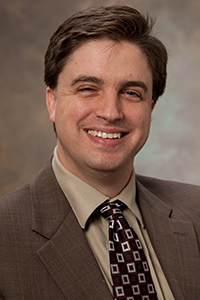Chris Pittenger earned his MD and Ph.D. degrees from Columbia University, where his graduate work was done with Nobel Prize recipient Eric Kandel. He returned to Yale University, his undergraduate alma mater, for residency and research training in psychiatry in 2003. He joined the faculty as an Assistant Professor in 2007 and is now Elizabeth Mears and House Jameson Professor of Psychiatry, Professor of Psychology and in the Child Study Center, and Deputy Chair for Translational Research in the Department of Psychiatry .
Chris has always been fascinated by the question of how the brain, a complex but ultimately a physical structure, creates thought, feeling, consciousness, and other aspects of the mind. As a psychiatrist he is additionally focused on how these processes go wrong - how brain dysregulation leads to dysregulated cognition, emotion, and behavior and to mental suffering, and how advancing our understanding of these relationships can guide us to new strategies to alleviate that suffering. Much of his work has focused on obsessive-compulsive disorder and Tourette syndrome and on the cortico-basal ganglia circuitry that is implicated in their pathophysiology. More recently he has co-founded the Yale Program for Psychedelic Science, focused on understanding how molecules like psilocybin and LSD can teach us about brain and behavior and may lead to new treatments for a range of neuropsychiatric pathology. He is also one of the founding Directors of the Yale Center for Brain and Mind Health, which seeks to bridge disciplines and levels of analysis to bring new therapeutics to individuals suffering from disorders of the mind and brain.
Dr. Pittenger's research and clinical work have been acknowledged by a number of prestigious awards, including grant funding from the National Institute of Mental Health, the National Institute of Neurological Disease and Stroke, NARSAD, the Tourette Syndrome of America, the Doris Duke Charitable Trust, and other organizations. He has won a number of awards, including from the National Institute of Mental Health, the Society for Neuroscience, the American College of Neuropsychopharmacology, the American Psychiatric Association, and the American College of Psychiatrists. He is a member of the Scientific Advisory Board of the International OCD Foundation and Chair of both their Grant Review Committee and their Annual Research Symposium Planning Committee. He is a Fellow of the American College of Neuropsychopharmacology, the American Psychiatric Association, and the American Neurological Association.





